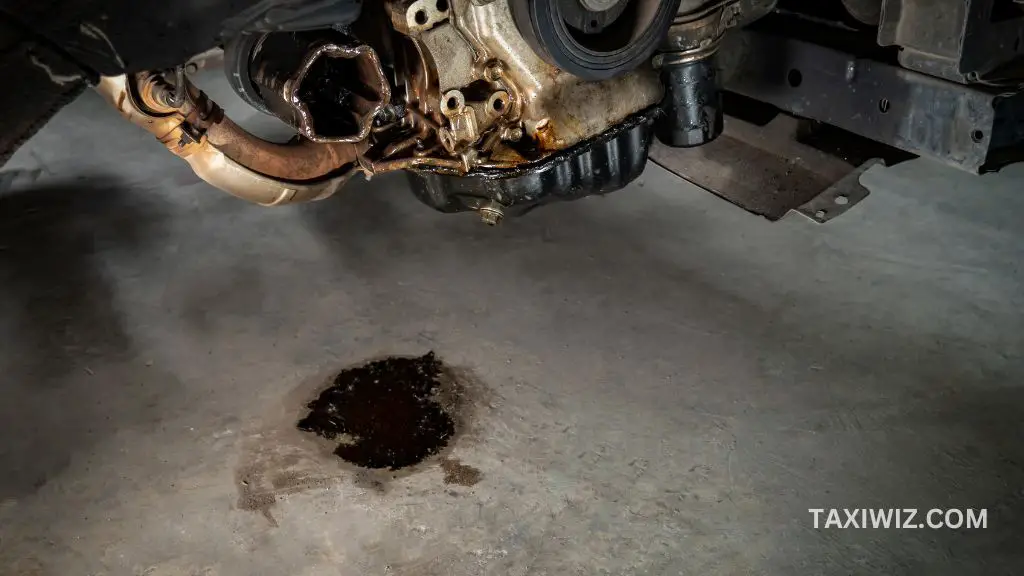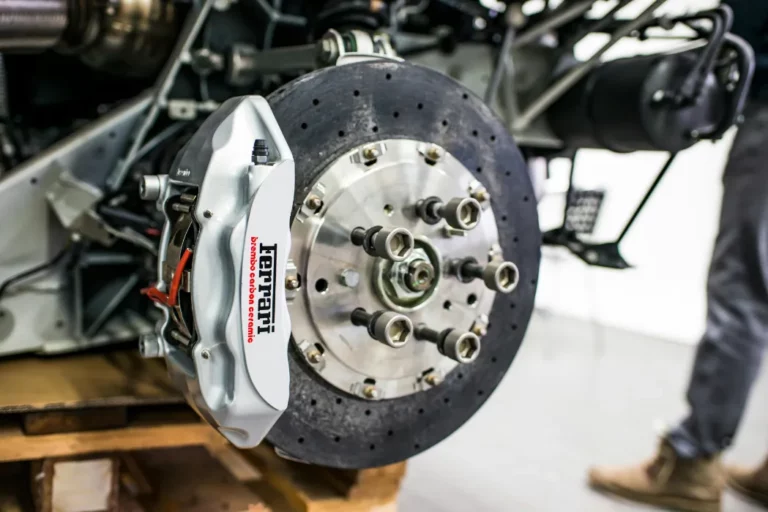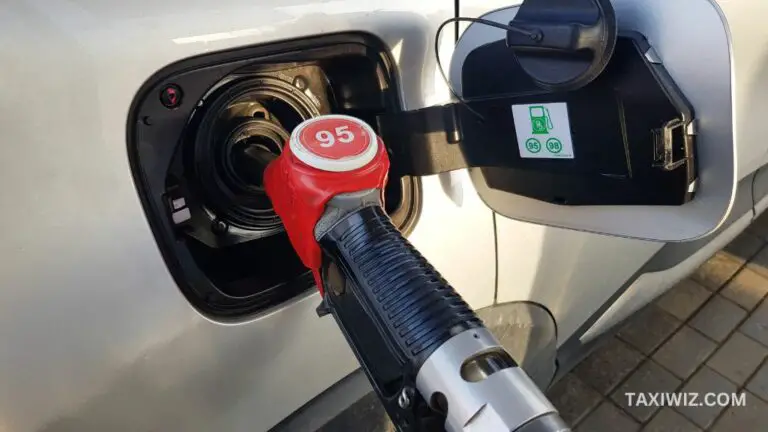Identifying and Resolving Oil Leak into the Alternator
The alternator is a device that converts mechanical energy from the engine into electrical power for the battery and other electrical components of the car. It has a bracket that holds it in place and prevents oil from entering it.
An oil leak into the alternator is where oil from the engine finds its way into the alternator unit. Some of the most common reasons behind this problem are worn or damaged seals or gaskets, cracked or loose hoses or fittings, faulty or leaking oil pressure switch or sensor, excessive oil pressure or level, improper installation or alignment of the alternator, etc.
However, when an oil leak occurs and oil infiltrates the alternator, it can lead to various problems and potential damage. This article will explore the symptoms, causes, and effective fixes for all causes.
What are the Symptoms of an Oil Leak into the Alternator?

When oil seeps into the alternator, it can cause several noticeable symptoms that indicate potential issues within the electrical system. By recognizing these symptoms, vehicle owners and technicians can take appropriate action to address the problem before further damage occurs.
Listed below are some indicators of an oil leak that may be affecting your alternator:
- Dim or flickering headlights
- Warning lights on the dashboard
- Reduced battery life or dead battery
- Strange noises from the alternator
- Burning stink or smoke from the alternator
- Overheating of the alternator
1. Dim or Flickering Headlights:
One of the common symptoms of an oil leak into the alternator is the dimming or flickering of headlights. This occurs as the oil interferes with the alternator’s ability to provide a consistent electrical supply to the vehicle’s lighting system.
2. Warning Lights on the Dashboard:
If an oil leak has reached the alternator, it can trigger warning lights on the dashboard. These warning lights may include the battery, oil pressure, or check engine lights. These lights indicate a disruption in the electrical system or a decrease in oil pressure, signaling potential alternator issues.
3. Reduced Battery Life or Dead Battery:
An oil leak into the alternator can lead to a reduced battery life or a completely dead battery. The oil contaminates the electrical components within the alternator, impairing its ability to charge the battery effectively. As a result, the vehicle may struggle to start or experience frequent battery failures.
4. Strange Noises from the Alternator:
An oil leak can cause unusual noises to emanate from the alternator. You may hear grinding, squeaking, or rattling sounds, indicating that the oil has affected the alternator’s internal components, such as bearings or brushes.
5. Burning Stink or Smoke from the Alternator:
If oil seeps into the alternator and reaches high temperatures, it can produce a burning smell or even emit smoke. This suggests a potentially severe issue, as the oil may have come into contact with hot electrical components or caused a short circuit.
6. Overheating of the Alternator:
Excessive oil accumulation in the alternator can lead to overheating. When the alternator operates at high temperatures due to oil interference, it may become less efficient and prone to damage. Overheating can be identified by an increase in the alternator’s temperature or an accompanying burning smell.
Causes of Oil Leak into the Alternator and Their Easy Fixes
Understanding the causes of an oil leaks into the alternator is crucial for effectively addressing the issue and preventing future occurrences.
1. Worn or Damaged Seals or Gaskets
Over time, the seals and gaskets that protect the alternator from external contaminants can deteriorate. This can create gaps or cracks, allowing oil to seep into the alternator.
The Fix:
- Remove the alternator.
- Replace any seals or gaskets that are worn or damaged.
- Ensure a proper seal during reinstallation to prevent future leaks.
2. Cracked or Loose Hoses or Fittings
Cracked or loose hoses and fittings connected to the engine or oil system can lead to oil leaks. The oil can enter the electrical components if these leaks are near the alternator.
The Fix:
- Inspect all hoses and fittings connected to the engine or oil system.
- Repair any cracks or tighten loose connections.
- Replace hoses or fittings that are beyond repair to prevent oil leaks near the alternator.
3. Faulty or Leaking Oil Pressure Switch or Sensor:
A faulty or leaking oil pressure switch or sensor can contribute to an oil leak. If the switch or sensor malfunctions, it may inaccurately read the oil pressure, leading to excessive oil levels and potential leaks into the alternator.
The Fix:
- Identify the faulty or leaking oil pressure switch or sensor.
- Replace the switch or sensor to restore accurate oil pressure readings.
- Verify that the new switch or sensor is functioning correctly.
4. Excessive Oil Pressure or Level:
High oil pressure or an overfilled oil reservoir can increase the likelihood of an oil leak. Excessive oil can strain the engine components, including the seals and gaskets surrounding the alternator.
The Fix:
- Using a pressure gauge, examine the oil’s pressure.
- Adjust the oil pressure to match the manufacturer’s recommended specifications.
- If the oil level is too high, drain the excess oil to the appropriate level.
5. Improper Installation or Alignment of the Alternator:
During alternator installation or repairs, if the unit is improperly aligned or installed, it can cause damage to the seals or gaskets. This damage may result in oil leaks over time, eventually reaching the alternator.
The Fix:
- Follow the manufacturer’s guidelines for alternator installation and alignment.
- Use the recommended tools and techniques to ensure proper installation.
- Double-check the alignment of the alternator and secure all connections.
Frequently Asked Questions (FAQs)
What are the consequences of an oil leak into the alternator?
An oil leak into the alternator can lead to electrical malfunctions, alternator failure, or damage to other engine components.
Is it safe to drive with an oil leak into the alternator?
It is not recommended, as the oil can interfere with the alternator’s electrical components and lead to a complete breakdown.
How much does it cost to repair an oil leak into the alternator?
The cost depends on the extent of the damage, the specific vehicle, and labor rates, but it generally ranges from $200 to $500.
Can I still charge my car battery with an oil leak into the alternator?
The oil leak may affect the alternator’s ability to charge the battery properly, so it is advisable to address the issue before relying on the alternator for battery charging.
How long does it take to repair an oil leak into the alternator?
The repair time can vary depending on the extent of the damage and the specific vehicle, but it usually takes a few hours to complete.
Can an oil leak into the alternator cause a fire?
While it is rare, an oil leak into the alternator can potentially lead to a fire if the leaking oil comes into contact with hot engine components or electrical sparks.
Can an oil leak into the alternator be covered by warranty?
Warranty coverage depends on the specific terms and conditions of your vehicle’s warranty. It is best to consult the warranty documentation or contact the manufacturer or dealership for clarification.
How often should I inspect my alternator for potential oil leaks?
It is a good practice to include a visual inspection of the alternator during regular maintenance intervals or whenever you notice any signs of oil leakage or electrical problems.
Related articles:




